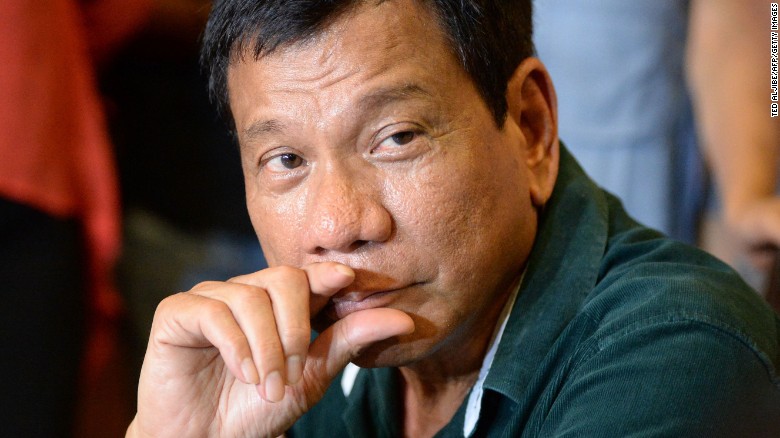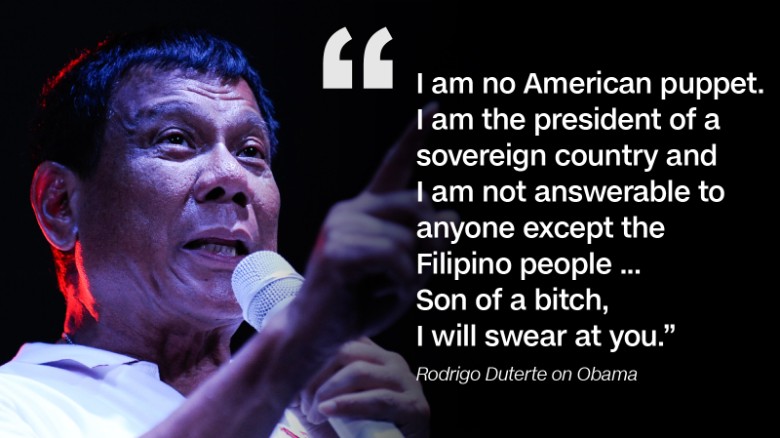Philippines' China gamble: From ardent critic to unlikely ally?
Within a span of a few months, the Philippines has transformed from one of China's most ardent critics into one of its potential allies.
"I'm going to China to make friends with them and also with Russia," Rodrigo Duterte, the Philippines' firebrand leader, claimed recently.
"I am ready to not really break ties [with America] but we will open alliances with China and . . . Medvedev [Russia]."
Since his first day in office, Duterte has consistently touted his commitment to forging a more independent foreign policy, which, to him, means less dependence on America.
Naturally, many are beginning to ask whether Duterte, a self-described 'socialist', will revamp the Philippines' foreign policy by shifting alliances towards China.
First state visit to China
Currently, the Philippines and China are negotiating a 25-year bilateral military agreement which allows Manila to purchase Chinese weapons. And unlike any of his predecessors, Duterte's first state visit will be to China.
Without a doubt, China will be rolling out the red carpet, charming its Filipino guest with maximum hospitality and offering assistance and good will.
During his stay in Beijing, Duterte is expected to discuss various measures to normalize bilateral relations, expand economic cooperation and explore a potential modus vivendi in the South China Sea.
Threats against the West
While Duterte is committed to improving ties with China, it is unlikely that he will risk alienating the Philippine security establishment and broader populace by severing security ties with the US altogether.
As he recently clarified, "We need not really... break or abrogate existing treaties [with America] because they say that it could provide us with [security] umbrella."
However, over the past few weeks, Duterte has scrapped joint maritime patrols and military exercises with the United States in the South China Sea, a crucial aspect of growing military resistance against Chinese assertiveness in the area, and threatened to expel US Special Forces from the southern island of Mindanao, where they have been aiding Philippine counter-terror operations.
Duterte's tirades against the West, particularly America, are both a reflection of personal conviction as well as political expediency.
On one hand, Duterte is genuinely critical of what he views as Western imperialism, embodied by American (real and imagined) interference in the domestic affairs of allies and developing countries the world over.
But the timing of his threats against the West could be explained by several factors.

This man compares himself to Hitler
Expletives against Obama
First of all, Duterte has been ticked off by America's increasingly open criticism of his signature "war on drugs" policy. No less than US President Barack Obama has openly confronted the Filipino leader on the issue.
"We're not going to back off on our position that if we're working with a country... it is important from our perspective to make sure that we do it the right way," the US leader warned Duterte.
Philippines' War on Drugs
- 6 stories from the front lines
- What is 'knock and plead'?
- Inmates crammed into jails
- Facebook live: Quezon City Jail
- Police chief: 300 dirty cops
- FM: We're not leaving U.N.
Duterte has responded with expletives against Obamain one occasion after the other.
When the United Nations and the European Parliament joined the fray, criticizing the Filipino leader's domestic policies, they were also met by Duterte's invective-laced tirades.
Then there is his upcoming trip to China, Duterte's first state visit. By openly threatening a downgrade in military cooperation with the West, the Filipino leader is signaling his independence and good will towards Beijing, which has been irked by growing American military footprint in the South China Sea in recent years.
As part of a grand bargain, the Duterte administration may actually not only suspend joint patrols and military exercises with America in exchange for Chinese concessions in the South China Sea, ranging from a joint fisheries agreement in the bitterly-disputed Scarborough Shoal to a broader non-aggression pact in contested waters.
News Courtesy: www.cnn.com











